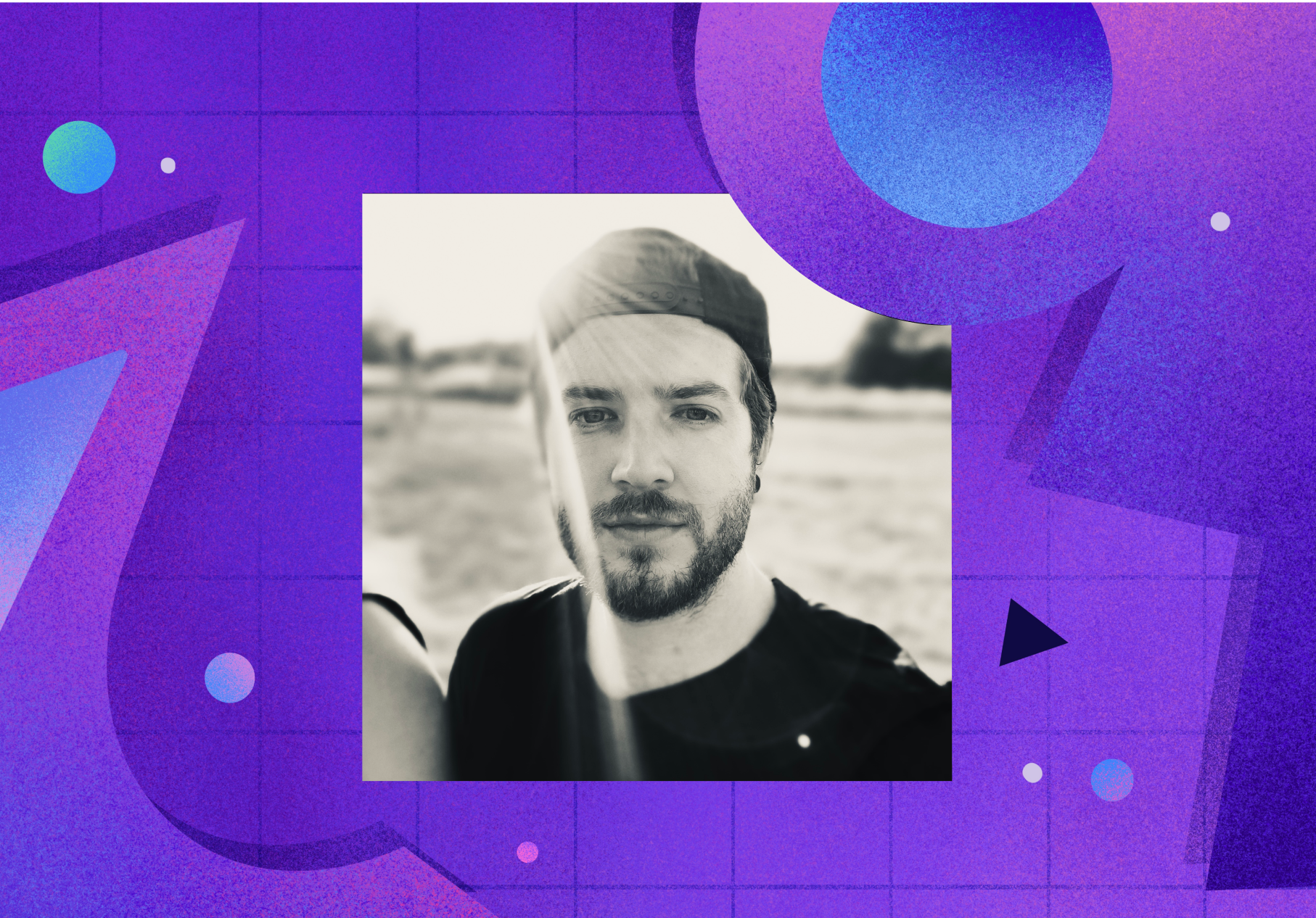Karl Koch’s passion for building things, currently as a senior product designer at DuckDuckGo, has its roots in the earliest stages of his life.
“I've always been a pretty creative guy. In my earliest years, I loved Lego and constructing objects out of things,” he says. “It was really this idea of building stuff.”
For Karl, that passion took him into school for Fine Arts, which he says focused less on the job you would get out of college, and more on what you’re passionate about (which would serve him well later in life). It was there, he now realizes, a path was being forged that would not only bring him to a career in design, but teach him valuable life lessons around solving complex problems and eventually, helping companies and colleagues do the same.
A non-traditional path to product design
Not to get too meta here, but life can feel like a big experiment, no? All of us rarely label it that way, but it often leads us down the path to our experiences, successes, or at times, failures. For Karl, he ran towards a life of taking chances when others would have run away from them: it taught him more about himself and gave him invaluable insights into how he could overcome a difficult post-college period to ultimately combine his work and passions.
“I experimented a bunch,” he says. “That's when I started creating album art and learning HTML/CSS and Photoshop. I explored video and meshed together the digital and physical,” he says. “But I left university and was completely lost. I was working in retail and business sales, telling myself that this feels like an ‘adult job’. I went into sales in the pharmaceutical industry, and now looking back, it doesn't sit well with me. I needed a job and it felt like the adult thing to do.”
“I started to ask myself, what am I good at here?”
Karl’s journey then took him to agency land, where he had the opportunity to experiment and evolve. “I started to ask myself, what am I good at here?”
It was then, he began exploring drawing flows and user perspectives, mapping outcomes, all the beginnings of UX work. He then got into coding and UX, where he was able to take on a hybrid designer/developer role.
“All of this time, I was thinking of it from a polywork perspective. My role wasn't a hybrid title. It shifted from Digital Lead to Lead UX Architect. At Homehero, I was a product designer. I just did what needed to get done, and the title is what it is. At Moneybox, I was a product designer with design systems. And now officially, I'm a product designer at DuckDuckGo, but I have a coding brain. What I've landed on is that I'm a designer who understands the other side of the funnel.”
Learning for yourself and helping others
If it wasn’t already abundantly clear, Karl is a lifelong learner. But, to help underscore it further, he recalls when he and his colleagues took a personality test that resulted in him being labeled a “learner”, someone who is comfortable with the uncomfortable and embracing evolution and change.
“I use those tools as a way of processing things. Those side projects are my way of saying I want to understand something in a way I can't [at work]. Companies that are able to give people space to do their best work and on their terms are going to see the best out of their employees.”
Part of his evolution has been making time for his passions. Karl has been able to embrace the joy in taking on side projects that bring his creativity into the equation. Whether it’s making music or charting his journey to building content through a headless CMS, for instance, he’s not just flexing his creative muscles, but ultimately benefiting his employers.
“I use those tools as a way of processing things. Those side projects are my way of saying I want to understand something in a way I can't [at work]. Companies that are able to give people space to do their best work and on their terms are going to see the best out of their employees,” he says.

Bringing more balance to his life is a perspective that came over time, and is something he attributes to the value of mentoring. “Often people's mentors are their managers. What I learned quite early on is that being mentored by a manager is good, but completely something else when they're removed from responsibility. Mentorship for me as an individual receiving it is the reason I got here. Having gone on a bit of a weird journey through my career and evolving through what interests me, I hope to have good ideas for people,” he says.
“You have to trust yourself. Early in your career, you're guided by what people tell you or what other people are doing. It's easy to look at other people and ask why you're not doing it that way. Confidence is the hardest thing to have when you're young in your career, but it's essential to have it.”
However, none of this can happen without finding and nurturing the confidence to grow as a personal and professional. That fact is not lost on Karl, who says one of the most significant lessons he’s learned along this winding journey is to trust himself.
“You have to trust yourself. Early in your career, you're guided by what people tell you or what other people are doing. It's easy to look at other people and ask why you're not doing it that way. Confidence is the hardest thing to have when you're young in your career, but it's essential to have it,” he says.

